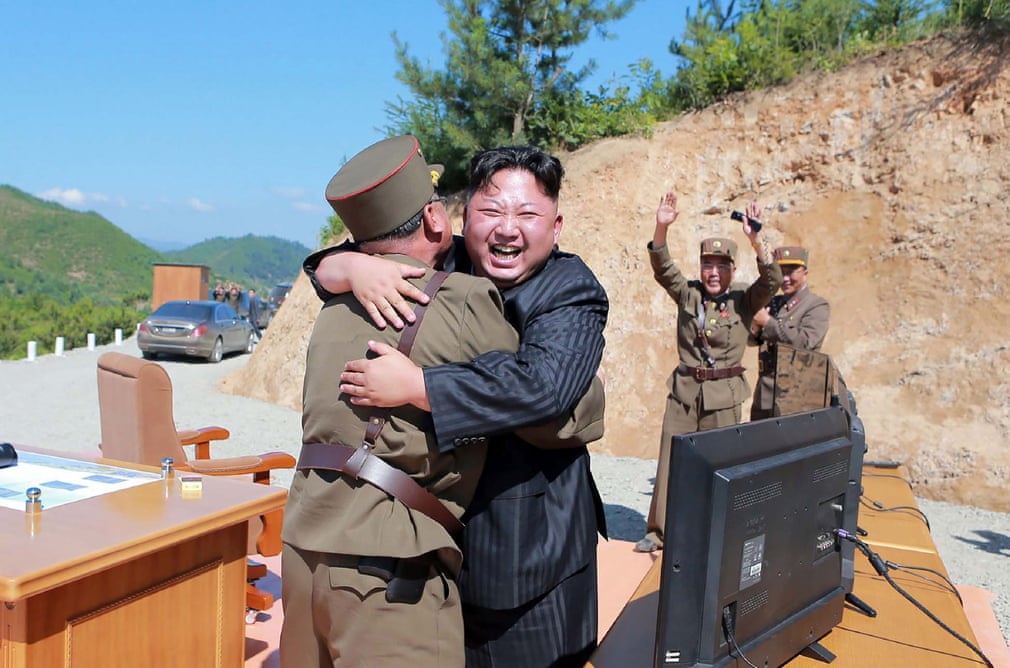North Korea’s juche ideology has created an environment where defense takes precedence over economic development. This has shaped the economic and political systems in ways that could allow the isolationist state to not only manage the financial intensity of nuclear weapons but avoid the punishments as well. In the early 1990s, North Korea suffered through a devastating famine that killed millions of its citizens. The fact that the regime survived this catastrophe is a testament to the resilient structure of its economic and political institutions. Some believe the regime survived because Kim Jong-il held such a strong centralized position over the state and was able to benefit from the devoted support of the military. The fact that the Kim regime was able to absorb the adverse effects of such a terrible famine is indicative of a system that would be equally resilient to influential power of foreign pressures. There are many reasons why sanctions failed to prevent a North Korean nuclear program. China often came to the country’s rescue, even when it had agreed to join sanctioning coalitions against Pyongyang. In response to the 2006 nuclear tests, United Nations Security Council Resolution (UNSCR) 1718 was drafted to impose restrictions on the exports of dual-use items, weapons technology, and luxury goods to North Korea. While China agreed to impose these restrictions themselves, UNSCR 1718 did not effectively suppress economic relations between China and DPRK. In fact, the trade of luxury goods between the two neighbors increased following this resolution. While China deserves blame for this, it is the inevitable result of a sanctioning coalition that lacked consensus and struggled from varying degrees of commitment from those involved. Another reason sanctions failed is the simple matter that it is difficult to punish a country economically if that country’s economy is weak to begin with. Foreign investment in North Korea is low even in the best of times because foreign companies are naturally afraid to do business with the volatile country. Forbidding companies from doing business in North Korea will not be effective if companies already refuse that possibility themselves. The same is also true when it comes to lifting sanctions or allowing business to take place as an inducement. The targeting capability of sanctioning coalitions is also hindered by the fact that North Korea possesses very few industries that can be sanctioned. Essentially, there is very little that can be taken away from North Korea’s economy.
The North Korean currency has no real value outside the country’ borders. This means Pyongyang cannot use it to purchase foreign goods or foreign currencies, making it exceptionally difficult for the government to engage with global markets. The regime has developed some creative and unscrupulous ways of circumventing this problem to finance its activities. One of the largest illicit financial operations in North Korea involves the production and smuggling of opium. North Korea has been harvesting opium for almost a century for uses in medicine, however in the 1970s the government started exporting it in drug smuggling operations in what it called the “Loyalty of Earning Foreign Currency” campaign. Since then, North Korean diplomats and military officials have been caught selling illegal narcotics in at least twenty different countries. These state controlled smuggling operations involve cultivating opium and processing it into heroin or methamphetamines in North Korea. These drugs are then sent to North Korean embassies abroad where they are sold to local organized crime syndicates. This valuable foreign currency is then sent back to Pyongyang, where the regime can use it to purchase goods on the international market. Pyongyang has also engaged in similar counterfeiting operations since the 1970s, producing primarily U.S. $20 and $50 bills. This counterfeit currency, like the drugs, are sent to North Korean embassies where they are released into circulation. The profit from these illicit financial operations supports and sustains the Kim regime, allowing it to purchase everything from sanctioned luxury goods to dual-use nuclear technology. Finally, the North Korean government has managed deals with its more prosperous neighbors that involve exporting North Korean labor in return for foreign currency. North Korean laborers are sent to Russia, China, and South Korea where they work in factories, construction, or farming. The money earned by these laborers is sent directly from the Russian, Chinese, or South Korean employers directly to the Kim regime, and the Kim regime pays these North Korean workers in valueless North Korean money when they return. The Kim regime profits by gaining valuable foreign currency it can use to purchase goods internationally, and loses nothing in paying its workers for the labor because the regime can simply print the money when it needs to send paychecks.


 )
)